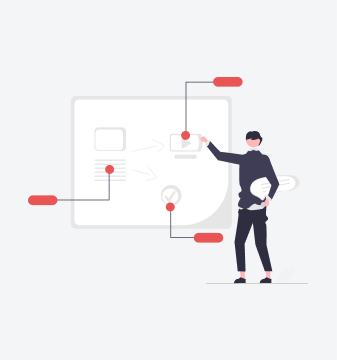What is the one thing that every business needs? The answer is—Data. Any type of business requires data for every process. For the sake of your company, you must acquire the necessary skills for gathering, managing, measuring, and analysing data.
Regression analysis is something most businesses use when trying to identify patterns in data or forecast sales based on specific factors. In this article, learn what regression analysis is, its applications, and more. So, read till the end.
What Is Regression Analysis
Regression meaning is simple — it is a standard tool for modelling or analysing data. Survey analysts typically use survey analysis to accurately forecast the outcome and comprehend the link between the factors.
Let’s take the example of a soft drink company that wishes to move its manufacturing facility to a newer location. The organisation wants to examine its income generation model and the different elements that could affect it before taking further action. So, the business performs an online survey using a specific questionnaire.
It is now simpler for the business to examine survey data and understand the correlation between various factors, such as revenue and electricity (where revenue is the dependent variable), after employing regression analysis.
Now that you know what regression analysis is, you should note that it comes in various types. However, the two most prominent ones are linear regression and logistic regression. We shall discuss them in another article. Meanwhile, let’s move on to the business applications.
Applications and Business Implications of Regression Analysis

Let’s say we apply a linear regression model to your business operations. In that case, you can use the regression analysis data in the following ways:
- Sales Forecasting: Companies that want to forecast future sales using past data often use regression analysis. For instance, a retail business can look at previous sales records in the context of factors such as the amount spent on advertising, the time of the year, or the general state of the economy. Specifically, they can manage resources, determine stocks, and predict future sales by creating a regression model.
- Price Optimization: Organisations can apply regression analysis to understand the effect of adjustments in the price variables for products, including production costs, competitors’ prices, and offers. Using this information, one can set the right price to increase the company’s profits without compromising on competition.
- Customer Behavior Analysis: Understanding customers is very important for any business organisation. Here, regression analysis helps determine the factors affecting the customer’s decision to purchase. Taking an e-commerce business as an example, it may seek to establish the effect of the following variables: product reviews, the layout of the website, and delivery time.
- Marketing Effectiveness: Using regression analysis, marketing teams can look at the amount of money spent on advertising and all other expenses that are related to the marketing campaigns, the frequency in which the business page is being shared on social media platforms, and the number of visitors to the business website to evaluate the marketing channel and campaign that contributes most to the company’s ROI.
- Credit Risk Evaluation: Credit risk in the process of loan application appraisal is also determined by banks and other organisations using regression analysis. Using the borrower’s income, credit score, and debt-to-income ratio, they can estimate the probability of a borrower defaulting.

Ending Note
Regression analysis is one of the best techniques that can be used to define and even predict trends in data. It is an essential tool for data management that leads to informed decisions and promotes better outcomes.
Master regression analysis by enrolling in the Data Analytics course from UpGrad and advance your analytics career. Learn the fundamentals of statistics and data analysis in this data analytics course, helping you learn how to make decisions based on facts.
FAQs
1. What is linear regression analysis?
The value of one variable can be predicted using linear regression analysis based on the value of another variable. The term “dependent variable” refers to the variable you wish to predict.
2. Can categorical data be subjected to regression analysis?
Logistic or multinomial regression can analyse categorical data with binary outcomes or numerous categories.
3. Which industries can use regression analysis?
Regression analysis has applications in almost every sector. This includes the following:
- Hospitality
- Agriculture
- Pharmaceuticals
- Sports
- Finance



